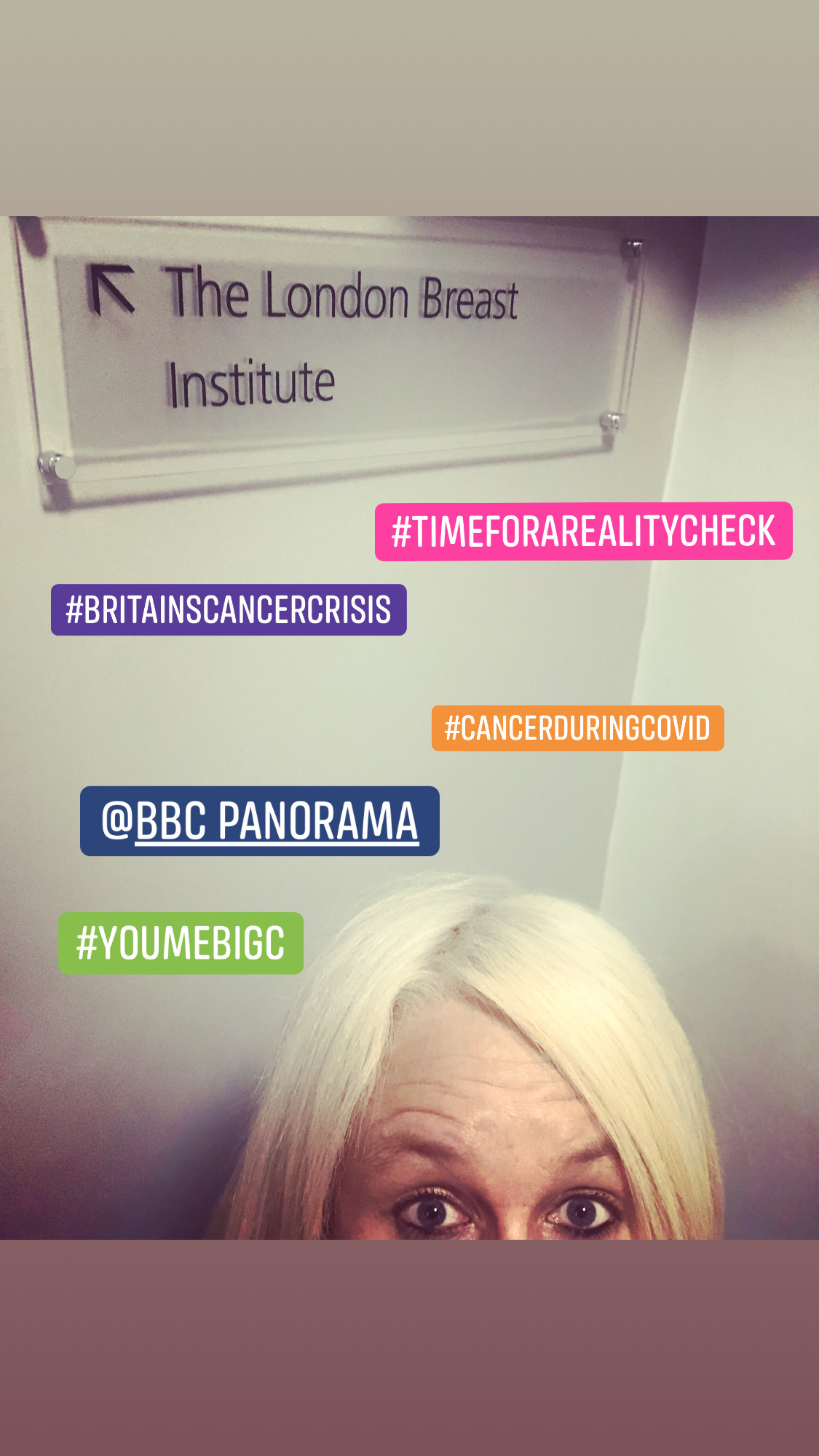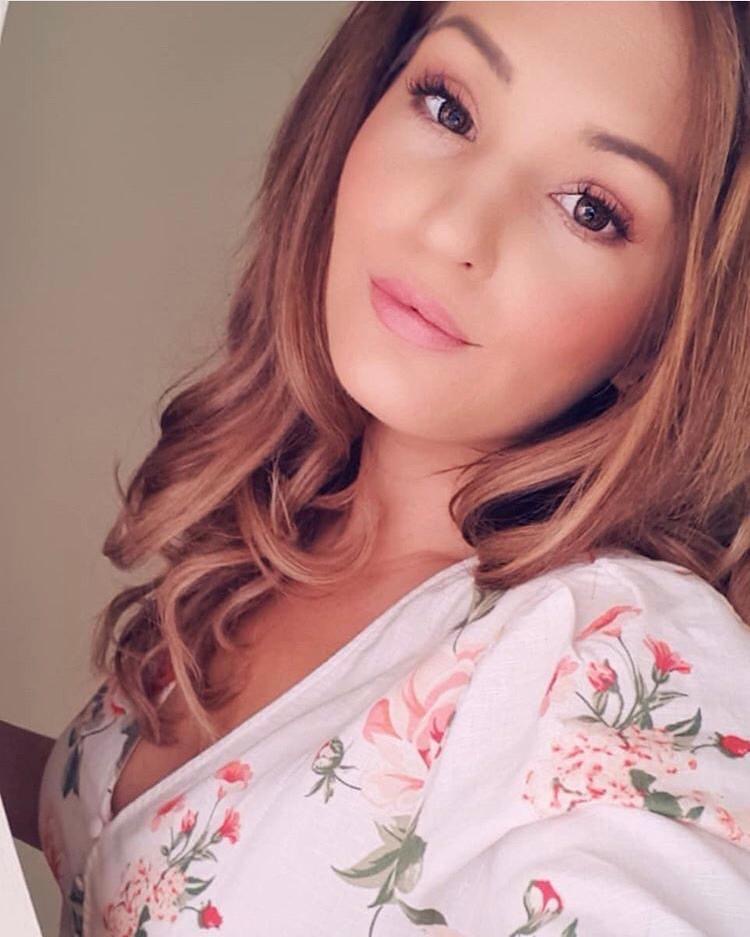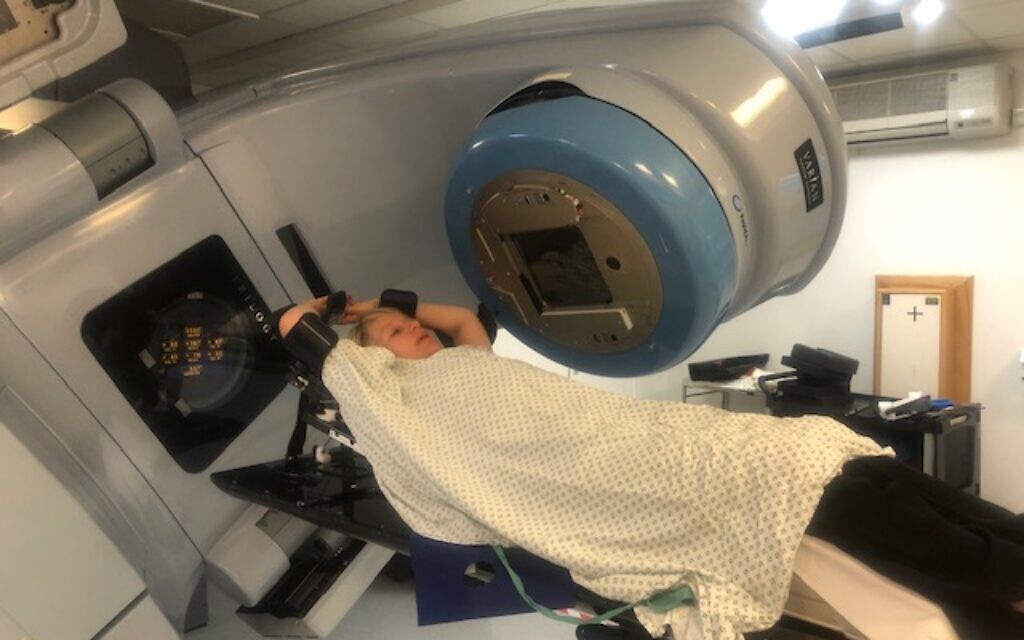OPINION: My covid cancer story led me to shine a light on a health crisis
BBC Panorama’s Lucie Kon explains the very personal journey that led to her making her latest film: Britain's Cancer Crisis.
February 26th is a day I won’t forget.
I had a doctor’s appointment at 3 o’clock.
I thought I’d be able to go to work and get on with my day as normal until then.
Get The Jewish News Daily Edition by email and never miss our top stories Free Sign Up
It turned out I was wrong. I struggled to concentrate through meetings, couldn’t sit at my desk and write when I needed to, and couldn’t even concentrate on a casual conversation over a cup of tea in the office kitchen.
At lunchtime, I gave in (and I hate giving in). I told my colleagues I was off for a walk and spent the next couple of hours circling Regent’s Park thinking, playing out the different scenarios that could come when the clock struck 3 and I could finally sit down and square up to my Consultant.
A week earlier, I had been to an appointment at my local breast clinic. It was a call back following my first ever routine mammogram at the end of January.
It feels stupid saying it now, but I think that was one of the scariest days of my life.

I went on my own and as soon as I sat down was given a whole load of leaflets about living with breast cancer. There was a lot of detail about surgery, life without boobs, even writing a will!
WRITING A WHAT?
Three hours later, after I’d had my boobs prodded, squeezed and scanned, I was taken to what looked like a tea trolley with a giant hole in it and told to lay face down.
The hole made my boob feel even smaller than it actually was! My daughter would have loved that, she’s always gone on about my baby boobs!
A very nice lady in a white coat smiled politely before lying underneath me (on the lower rung of the ‘tea trolley’), shoved a giant needle into my right boob, turned it about 180 degrees and then used it remove what she described as ‘the suspicious area’.
In it’s place she told me she was putting was ‘a marker’.
‘Nothing to worry about’, she said, ‘we have to do this for all the ladies we biopsy. Just putting it there in case’ Twenty minutes later, I was packed off with an appointment card to pick up the results and handed a load of leaflets about breast cancer.
As she gave them to me, the nurse said ‘we’d like you to read these. We’re not worried but please do have a look before your next appointment’!
Of course, having been told not to worry, I walked away from the breast clinic worried.
Of course I was worried!
A week on, without much sleep and with my brain now bursting with too much information having spent every spare hour googling different kinds of breast cancers, how to tell your friends you have cancer, how to tell your children you have cancer, I found myself sitting in the hospital waiting room, wondering how I would react to whatever I was about to be told. I worried that if doctor said I didn’t have cancer I might look disappointed. Now that would be weird.
I think it was about 20 minutes after my allotted slot that my name was called.
A smiling Professor walked towards me with outstretched hand and introduced himself.
Pleasantries out the way, he asked if anyone in my family had had breast cancer.
The penny quickly dropped. I don’t remember a lot more of the conversation after that.
View this post on InstagramA post shared by BBC News (@bbcnews) on
More prodding followed and a load more tests. I remember texting my boss to apologise because I was being booked in for surgery two days later so wouldn’t be able to go into work that day.
At that stage, there was no way the cancer word was going to pass my lips.
Two days later I went into hospital for surgery, came home that evening with half a boob and an aching arm but lots of chicken soup various friends had delivered to make it better… and it was GREAT chicken soup.
For a while I think I probably did feel a bit sorry for myself but then covid hit …and everything changed.
Not really having a clue about cancer, one of the first things I did when I got the diagnosis was join a breast cancer support group on facebook and I started dabbling on Instagram, following some of the team from who present the podcast, ‘You, Me and The Big C’.
I think all this was a way of me trying to get my head around my new reality – and it was a good reality check, making me realise how lucky I was that my cancer had been found as the result of a routine mammogram. It was still at an early stage and was very treatable.
As the weeks went on and we headed into lockdown, I was booked in for a CT scan to plan the next step of my treatment, radiotherapy. Lockdown happened – in the news there were reports of hospitals closing their doors to all but covid patients, people were told to ‘stay at home to protect the NHS and save lives’ on social media, I started to read about lots of other ladies who had a similar, or much more serious diagnosis than me and were scared what all this would mean for them, then, my oncologist called and suggested my treatment might be changed so as not to put me at risk.
“I’m waiting for my friend to die, praying that she’s not in pain”
Deborah James's friend Kelly was one of thousands of cancer patients who had their treatment halted or delayed as coronavirus spread in the UK. She died two weeks agohttps://t.co/JLKEmbIuav pic.twitter.com/s0yX9bBCm0
— BBC News (UK) (@BBCNews) July 7, 2020
Why would I be at risk? Now I was scared too.
The CT scan followed in the first week of April. I drove through deserted roads to the hospital. I should really have been quite happy that a journey that might ordinarily have taken an hour, now took 20 minutes, but I was petrified.
A week later, I was back on the same road driving to my first treatment.
By now, social media was bursting with stories of other patients petrified – people who were desperate to stay alive, even if it was just to give them a few more weeks, but their treatment had been stopped (or hadn’t been started), many had been told to shield and were alone – cut off from family and friends with no idea not just what the future might hold, but whether they had one at all, but there was me, my tumour successfully removed, driving myself back and forth to radiotherapy.
As the days went on, I was tired, what’s left of my boob was a bit burnt and uncomfortable, but I was alive and was going to be fine.
I felt guilty.
This is my long- winded way of explaining why I was so passionate for Panorama to make a film shining a light on Britain’s Cancer Crisis.

I am so grateful to my colleagues for bearing with me, and incredibly grateful to the brilliant Production team, and the gang who make the You, Me and The Big C podcast for agreeing to my mad cap plan to do this together and so quickly.
For my colleague Chris, who directed, the last few weeks have been especially difficult. He lost his wife to pancreatic cancer at the end of last year. He, like me, felt this was a story we HAD to tell.
Yesterday in the House of Commons, Tim Farron MP, who chairs the All-Party Parliamentary Group on Radiotherapy asked the Health Secretary Matt Hancock for a meeting following the Panorama to discuss a plan to get cancer services working again – to try and avoid another healthcare crisis. He agreed.
I hope that means the incredibly brave patients who shared their stories on the programme, and the many thousands more who have been in touch with Deborah (@bowelbabe) and I since, will get the diagnostics and treatment they need.

It’s too late for Kelly Smith (@kickasskell), the young mum who died ten days after filming with us in June.
She has left behind a grieving family, including her beautiful little boy, Finn, who is just 6.
They don’t know whether Kelly would have had more time if Covid hadn’t struck, but hope that sharing her story will mean there are as few families as possible who don’t have to have the same devastating experience.
Lucie Kon, Executive Producer – BBC Panorama, explains the very personal journey that led to her making her latest film: Britain’s Cancer Crisis.
- Panorama: Britain’s Cancer Crisis is available to watch on the bbc iplayer https://www.bbc.co.uk/iplayer/episode/m000kqzv/panorama-britains-cancer-crisis
- Lucie will be discussing her story behind the film on the podcast, ‘You, Me and The Big C’ available to download on BBC Sounds from Tuesday 14th July.

Thank you for helping to make Jewish News the leading source of news and opinion for the UK Jewish community. Today we're asking for your invaluable help to continue putting our community first in everything we do.
For as little as £5 a month you can help sustain the vital work we do in celebrating and standing up for Jewish life in Britain.
Jewish News holds our community together and keeps us connected. Like a synagogue, it’s where people turn to feel part of something bigger. It also proudly shows the rest of Britain the vibrancy and rich culture of modern Jewish life.
You can make a quick and easy one-off or monthly contribution of £5, £10, £20 or any other sum you’re comfortable with.
100% of your donation will help us continue celebrating our community, in all its dynamic diversity...
Engaging
Being a community platform means so much more than producing a newspaper and website. One of our proudest roles is media partnering with our invaluable charities to amplify the outstanding work they do to help us all.
Celebrating
There’s no shortage of oys in the world but Jewish News takes every opportunity to celebrate the joys too, through projects like Night of Heroes, 40 Under 40 and other compelling countdowns that make the community kvell with pride.
Pioneering
In the first collaboration between media outlets from different faiths, Jewish News worked with British Muslim TV and Church Times to produce a list of young activists leading the way on interfaith understanding.
Campaigning
Royal Mail issued a stamp honouring Holocaust hero Sir Nicholas Winton after a Jewish News campaign attracted more than 100,000 backers. Jewish Newsalso produces special editions of the paper highlighting pressing issues including mental health and Holocaust remembrance.
Easy access
In an age when news is readily accessible, Jewish News provides high-quality content free online and offline, removing any financial barriers to connecting people.
Voice of our community to wider society
The Jewish News team regularly appears on TV, radio and on the pages of the national press to comment on stories about the Jewish community. Easy access to the paper on the streets of London also means Jewish News provides an invaluable window into the community for the country at large.
We hope you agree all this is worth preserving.
-
By Brigit Grant
-
By Laurent Vaughan - Senior Associate (Bishop & Sewell Solicitors)
-
By Laurent Vaughan - Senior Associate (Bishop & Sewell Solicitors)
-
By Laurent Vaughan - Senior Associate (Bishop & Sewell Solicitors)
-
By Laurent Vaughan - Senior Associate (Bishop & Sewell Solicitors)






















